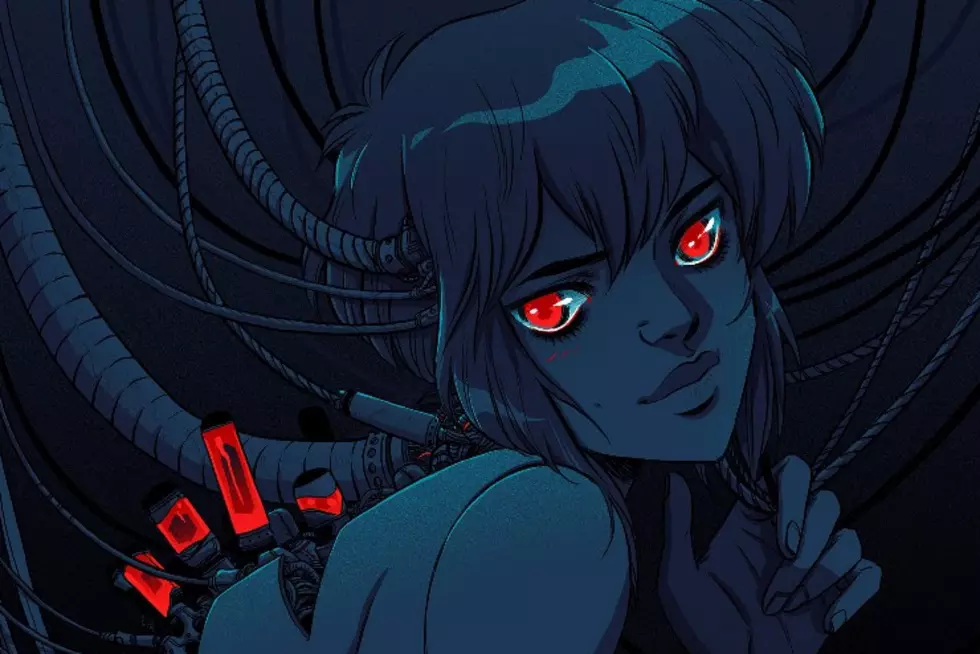
Tokyopop Returns With Plans To Evolve In The New Year

One of the largest and occasionally most controversial publishers of recent years is apparently making a comeback, with the news that Tokyopop has relaunched its website and is promising a new evolution in the way it brings the world "Asian pop culture" in the coming months. But does this mean comics...?MTV Geek was one of the first sites to notice the site's relaunch, which apparently happened quietly at some point last weekend. On the official company blog, company CEO Stu Levy admitted that "Things have changed so much in the past couple of years, in my life, with TOKYOPOP and more," adding that he's "proud that we - together with all of you - brought Japanese pop culture, especially manga, to North America and beyond [and in the process] popularized a wonderful art form and brought stories that rival (and often beat) Hollywood's best."
However, he continued, both pop culture and technology have moved on since those happy days, bringing with it the rise of digital publishing that, he suggests, brought down the previous incarnation of the company. "We didn't have ebook rights to most of our series (except OEL)," he wrote, and "unfortunately, our Japanese licensors did not move fast enough to provide a legitimate alternative to piracy, and piracy shows no mercy." So little mercy was shown, apparently, that "as a result, TOKYOPOP had to shut down its LA office and the licenses to Japanese titles expired, reverting to its Japanese licensors."
To blame Tokyopop's disappearance - some would say "bankruptcy," although Levy has apparently characterized it as a transformation into a "virtual company" - on piracy is, at best, an overly simplistic view of things; many things were ultimate at play in the company's collapse, including the bankruptcy of bookstore chain Borders and the loss of licenses from Japanese publisher Kodansha which pulled a number of successful series for Tokyopop before their conclusion. Becky Cloonan, who created East Coast Rising as part of Tokyopop's Original English Language line of new material, also noted what she saw as a move on Levy's part away from comics and towards a broader media magnate approach:
That's not to say it's bad to cultivate options for a property outside of comics, but it seemed, for my book and from my perspective at least, that they put zero effort into marketing East Coast Rising. I had issues with the design of the book that went unheard. I even heard that they didn't stock my comic in many stores. I felt like they were more excited when my book garnered attention from animation and video game companies than when it got an Eisner nomination. To me, I don't really care about media rights. Money is great and everything, but I'm in it to make a good book. And I think that's where our interests were divided... As a creator, even though my editor was great, I never felt like I was important to the company, and that on the whole, my book didn't matter. I didn't feel looked after. And I guess my feelings were justified when they canceled my book with no warning. I even went to their office for a meeting to try and get the print rights back, or just get them to print it again- well I bet you can guess what answer I got.
Now, though, Levy is promising that the new Tokyopop is "evolving as a company" - although, towards what ends is unclear. "I know many fans would prefer us to return to being a manga publisher like we were for most of our history," he wrote, reassuring those fans that "manga will never disappear – we will do what we can to deliver manga," but going on to say that he plans instead on "experimenting with new ways to bring you Asian pop culture" and asking fans to keep an open mind.
Whether those experiments mean that Tokyopop will continue to focus on comic publishig remains to be seen. Currently, the Tokyopop website offers both print books ("in partnership with RightStuf.com," apparently, meaning that they are print-on-demand rather than traditional mass publication releases) and digital releases through Graphic.ly, seemingly concentrating on its OEL back catalog as well as titles from China, Korea and France. Will the company move back towards traditional publishing models and offering their titles through bookstores and the Direct Market again, or are comics just to be one small part of a grander plan...?
More From ComicsAlliance
![The Autobiography Of Loma: ‘Shade The Changing Girl’ #7 [Exclusive]](http://townsquare.media/site/622/files/2017/03/STCG_Cv7_featured.jpg?w=980&q=75)



![‘Gotham Academy: Second Semester’ #5 Proves That Smoke Bombs Are The Solution To All Your Teen Problems [Exclusive Preview]](http://townsquare.media/site/622/files/2017/01/GA00.jpg?w=980&q=75)



![Fall In With A Bad Crowd In ‘Gotham Academy: Second Semester’ #1 [Preview]](http://townsquare.media/site/622/files/2016/09/GA00.jpg?w=980&q=75)
